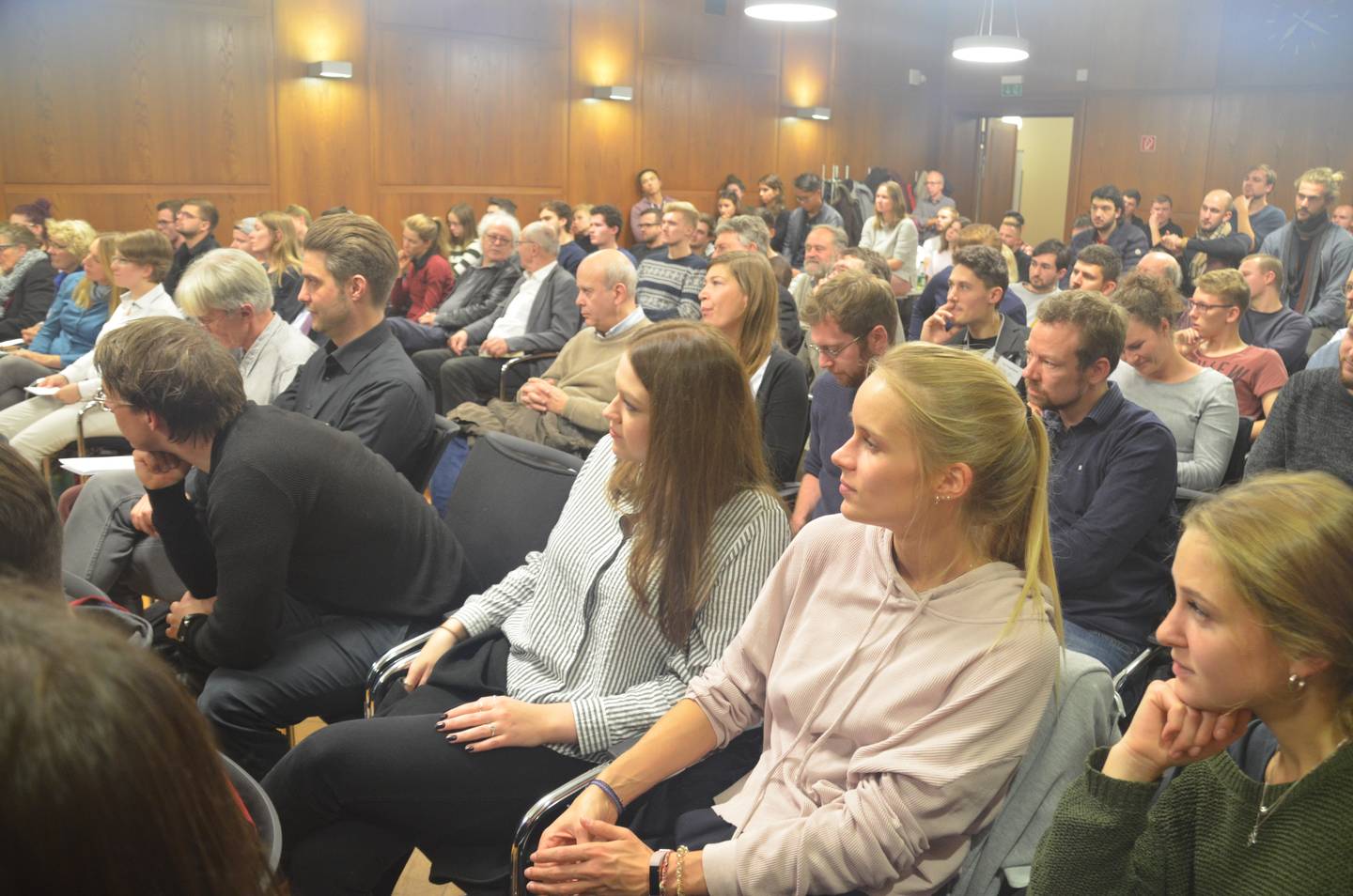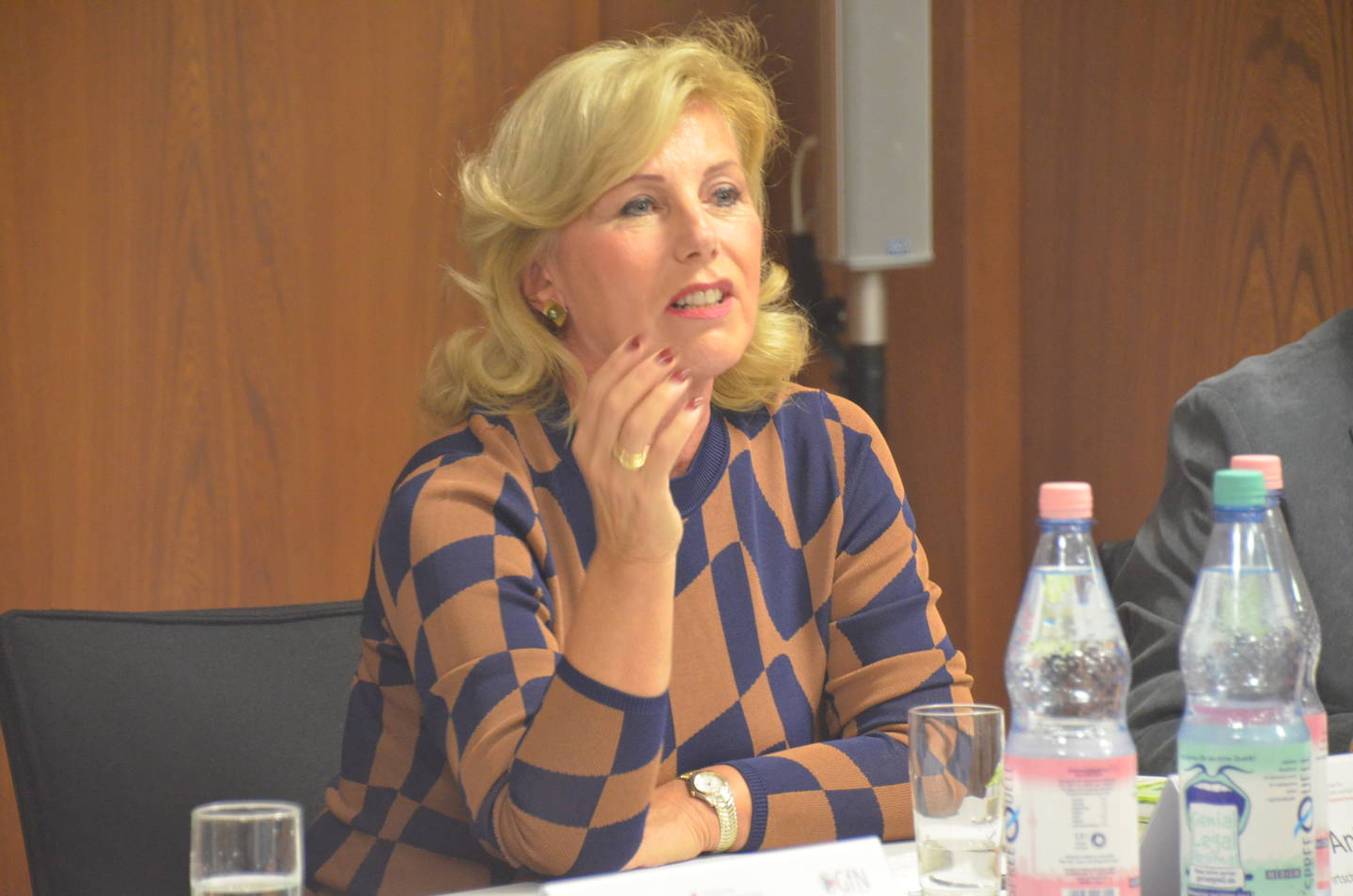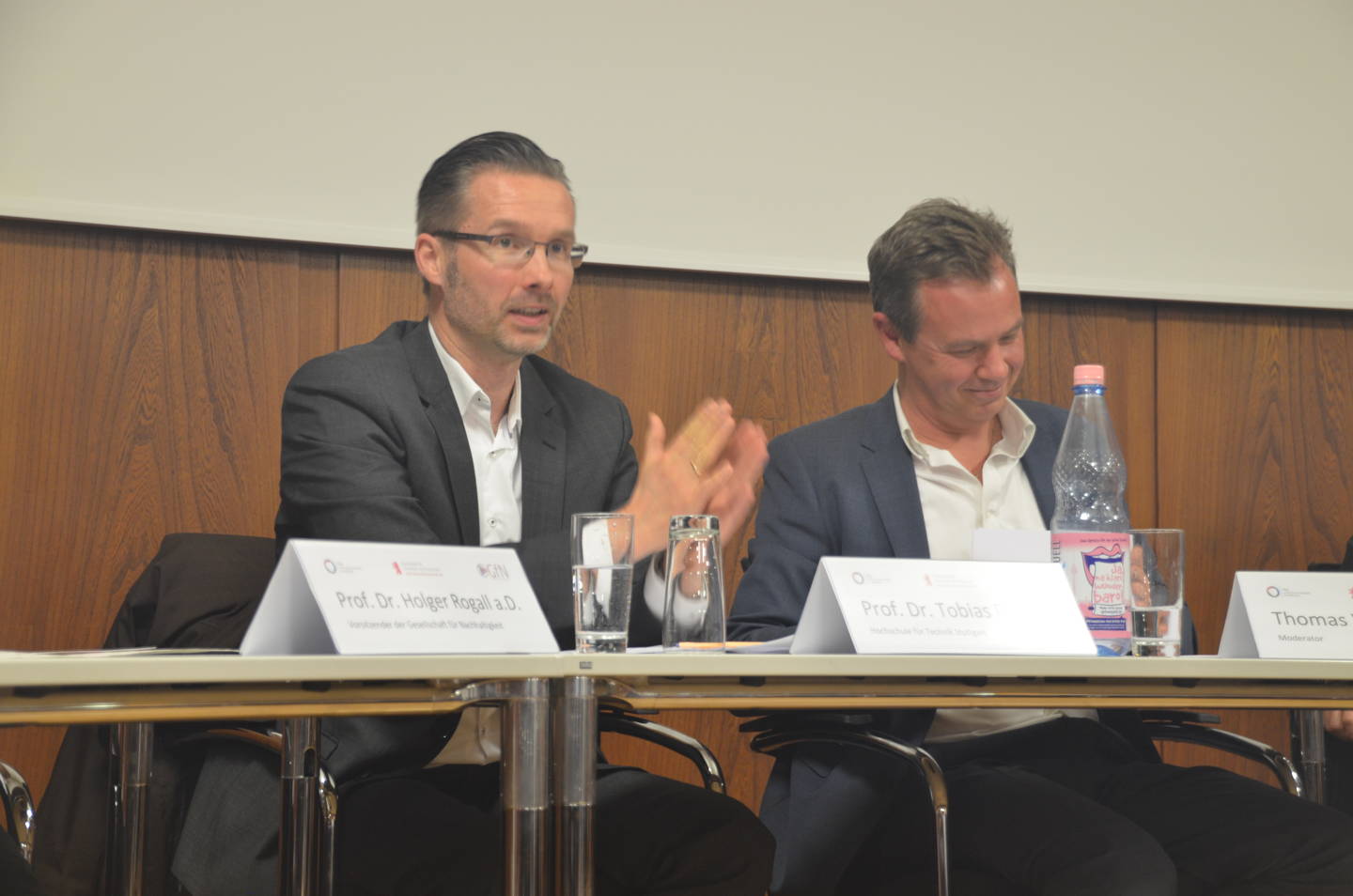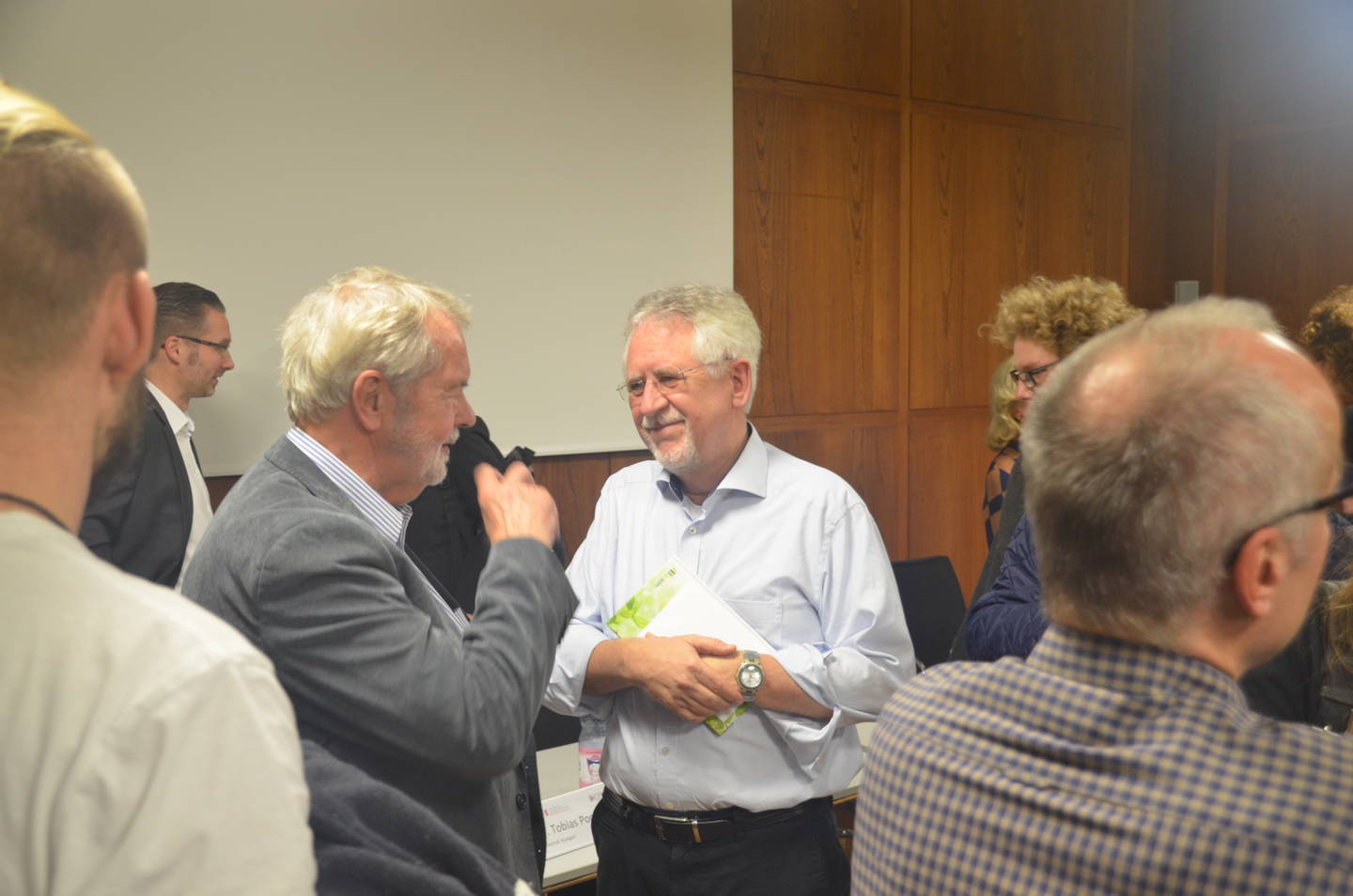News | Sustainability
The future of sustainable economic management
The subject of the 18th Nachhaltigkeitsforum was sustainable economic management in a digitized world.
13.11.2018
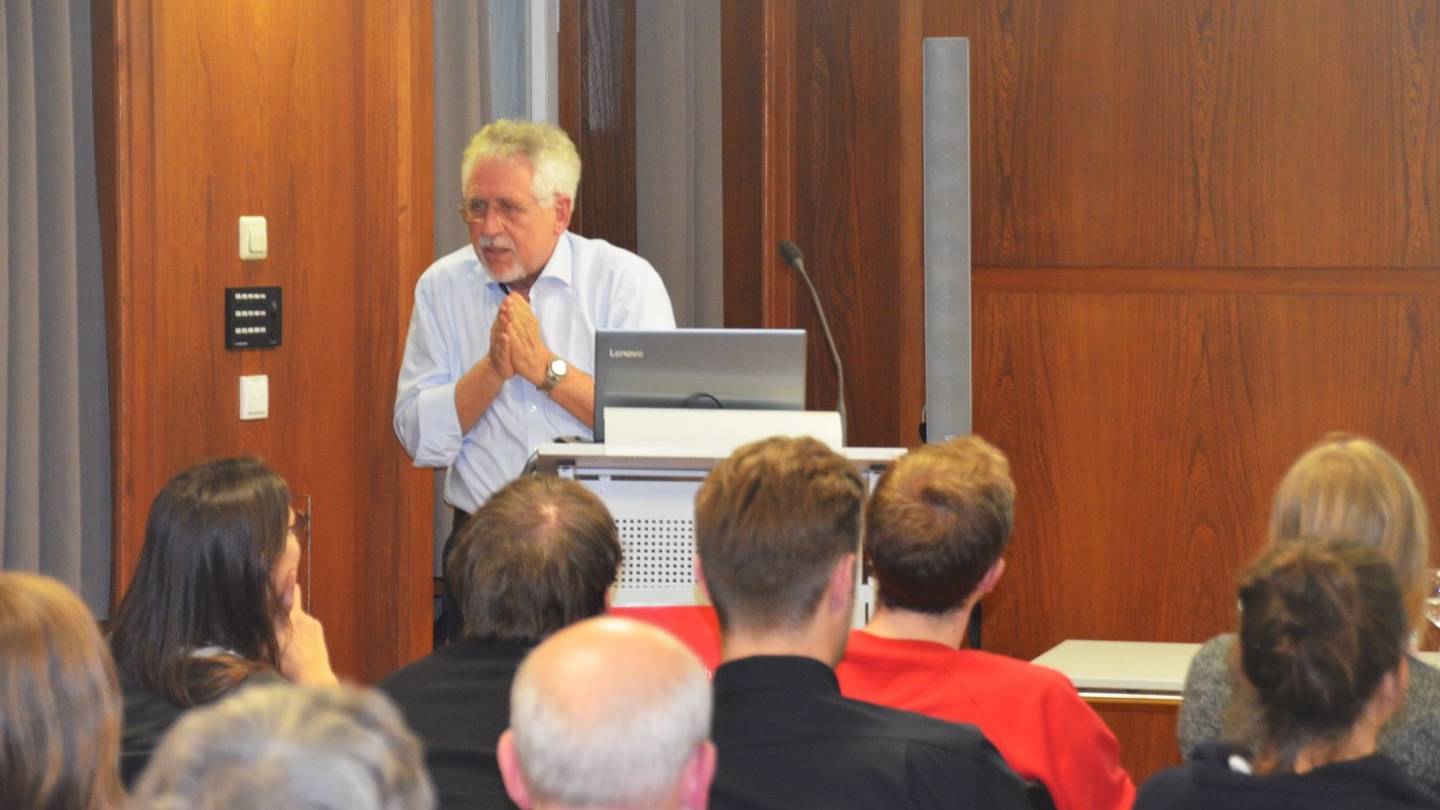
At the 18th “Nachhaltigkeitsforum” (sustainability forum) held at the HWR Berlin on 5 November, Prof. Holger Rogall argued the case for continuing to support and develop research and teaching in the field of Sustainable Economics. As Rogall stated, humanity is currently at a key crossroads. The only conceivable alternatives to sustainable business management are climate and resource-related conflict in the not too distant future: “merely “carrying on as normal” is not an option due to the problems involved – we will only be able to survive as a civilisation if we completely revolutionise our economy.” The basic principles behind a solution to the “greatest challenge facing humanity” are in place, said Rogall in a speech marking the end of his time as Director of the Institute for Sustainability of the HWR Berlin (INa). The event was organised by the Gesellschaft für Nachhaltigkeit (GfN) association working in collaboration with the INa.
The focal point of the panel discussion, which was presented by the political and communications consultant Thomas Viertel, was the issue of the future of sustainable economic management in a digitized world. For Prof. Nina Michaelis, a lecturer in Sustainable Economics and International Trade Relations at the FH Münster, the new technologies are merely a means to an end. She referred to a fundamental shift in values with regard to the pressing issues in the age of increasing evidence regarding climate change: “We need to have a public discussion about what we want to achieve with the opportunities provided by digital media.”
According to Michaelis, universities should attach even greater importance to conveying values in their teaching. A similar opinion was also given by Prof. Anja Grothe, Lecturer in Sustainable Management at the HWR Berlin, who provided a critical assessment of the current situation in educational establishments. There was consensus among the podium participants that there would need to be a core module on sustainability in training for key competencies. A number of universities are ready to establish such a module in their curricula.
On the contrary, Grothe regards the current support provided by the Berlin Senate as a positive signal. Prof. Tobias Popović from the Centre for Sustainable Economics and Management (ZNWM) at the HFT Stuttgart offered a reasonably confident look into the future: in his opinion, the EU Commission’s “Action Plan for Sustainable Finance”, whose aim is to guide capital flows into more sustainable business management, could give some cause for hope.
The panel discussion was preceded by two speeches which focused less on digitalisation, and more on the urgent nature of sustainable business management. The following question provided the main focal point of interest for Prof. Peter Hennicke, member of the Club of Rome and President, until his retirement, of the Wuppertal Institute for Climate, Environment and Energy: is it possible to completely remove the link between gross domestic product and the consumption of natural resources? According to Hennicke, this question targets a transformation in the overall social system. As the Federal Chairman of the NaturFreunde Deutschlands association and former Parliamentary State Secretary to the Federal Minister for the Environment, Nature Conservation and Nuclear Safety, Michael Müller has promoted the establishment of a Sustainability Committee in the Bundestag. The aim is for this Committee to be given the same comprehensive competencies as the Committee on Budgets and be able to stop any resolution passed by the Bundestag that is not in line with the principles and management rules of sustainability.
